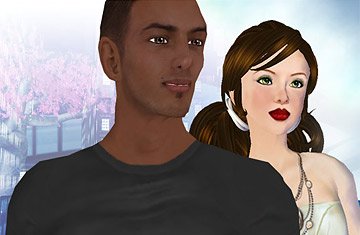
Synthetic Authenticity.
Not long ago I found myself in a Hermitage, Tenn., supermarket studying a bottle of something called All-Purpose Bourbon-Chicken Grill-n-Dip. At the bottom of the label were the words AUTHENTIC FOOD COURT FLAVOR.
It seemed like a joke at first. A sauce surely can't be authentic if it tastes of a food court and not, say, of your mother's stove. But it wasn't a joke. Promoting products as "authentic" is serious business these days. You will notice the word and its variants being used to sell just about everything—Stoli vodka (whose new ad campaign urges you to "Choose Authenticity"), Kool cigarettes ("Be Authentic"), the now expired presidential campaign of Mike Huckabee (who called himself an "authentic conservative"), the website Highbrowfurniture.com ("Authenticity. Period."), the Claddagh Irish Pub chain (which claims to have an "authentic 'public house' environment," whatever that is) and the state of Maryland, where "even the fun is authentic."
Legendary business consultants James Gilmore and Joseph Pine II have written a book about what all these claims mean. In Authenticity (Harvard Business School Press), they argue that the virtualization of life (friends aren't friends unless you "confirm" them on Facebook; reporters are now all bloggers, and vice versa) has led to a deep consumer yearning for the authentic. America has "toxic levels of inauthenticity," Gilmore and Pine argue: most of the e-mail we get is fake. It's so difficult to reach a real person via an 800 number that we had to invent a heretofore unnecessary locution—real person—to describe the entity we are trying to reach. People live fake lives in Second Life. Corporate deceit reached epidemic levels after the dotcom bust. Depending on your politics, you might add that there were no WMD.
Gilmore and Pine run an Aurora, Ohio, consulting firm called Strategic Horizons that has an almost cultlike following in the business world because of their ability to accurately predict consumer sentiments. Nine years ago, in their first book, they argued that businesses had to start selling experiences—not mere products—in order to survive the new economy. The Experience Economy: Work Is Theatre & Every Business a Stage made the case that goods and services were being so thoroughly commoditized by Wal-Mart and the Internet that companies would fail unless they could create such diverting shopping experiences that customers would pay more for the same stuff they could buy for less elsewhere. The book helped explain the success of Starbucks, which sold not just coffee but an Italian coffeehouse experience. The Geek Squad was another example: the company thrived by staging computer repair as theater. Its repairmen arrive at your door literally in costume. The Experience Economy became a sensation in business circles.
Gilmore and Pine write as much about culture as about business, and their new book on authenticity has crystallized the interaction between self and commerce in the current era the way The Experience Economy did for the late 1990s. The aura of inauthenticity around some brands is killing them, Gilmore and Pine say. Just look at Sharper Image and all its shiny gewgaws—or Lillian Vernon, which sells tacky jewelry and fake "Forever-Fresh" daisies. Both companies filed for bankruptcy last month. "What [consumers] buy must reflect who they are and who they aspire to be in relation to how they perceive the world—with lightning-quick judgments of 'real' or 'fake' hanging in the balance," Gilmore and Pine write.